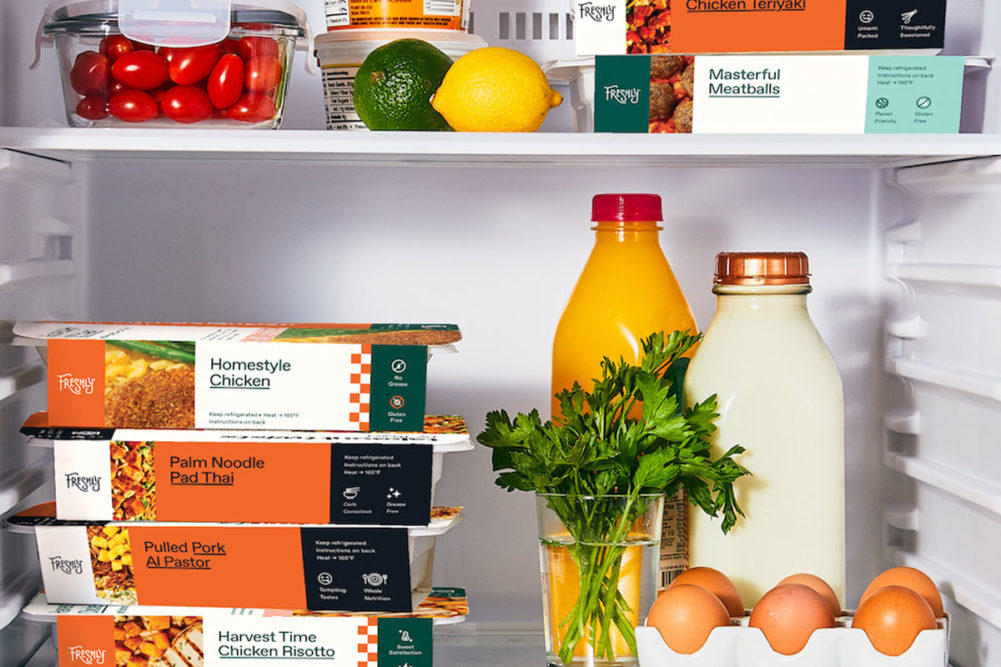NEW YORK — Freshly is halting its direct-to-consumer meal delivery business. The company, which was acquired by Nestle in 2020, updated its website in late December to reflect the change.
“It is with a heavy heart that we announce the Freshly meal delivery service will be ceasing operations,” the message said. “This is a difficult time as we say goodbye to our incredible community.”
Consumers may continue placing orders through Jan. 17, and the final day of shipping will be Jan. 21. A spokesperson for Freshly declined to comment on the news.
Launched in 2015, the fresh-prepared meal delivery company was acquired by Nestle in 2020 for $950 million. A year later it unveiled plans to bolster production and order fulfillment with new facilities in Georgia and New Jersey. During the height of the pandemic-driven surge in at-home eating, Freshly claimed to deliver more than 1 million meals each week to consumers across the country.
The meal delivery service suffered in 2021 as consumers began shifting their food spending back outside of the home. High inflation and economic uncertainty in 2022 also drove more shoppers to reduce their reliance on the subscription service.
Other meal delivery companies are facing similar challenges. Blue Apron in December revealed plans to downsize its corporate workforce by 10% following an 8% decline in customers during the third quarter of 2022. In October, HelloFresh noted it would lay off more than 600 employees.
Nestle in November partially offloaded Freshly through a partnership with private equity firm L Catterton. The partnership gave L Catterton a majority stake in Freshly and combined the company with Kettle Cuisine, a fresh foods manufacturer servicing retail and foodservice customers.
Mark Schneider, chief executive officer at Nestle, discussed the challenges facing Freshly and the merger with Kettle Cuisine during an investor seminar late last year.
“A D2C channel for a business of this type … is simply too narrow” he said. “As the pandemic waned, clearly, customer retention did not maintain the levels we saw during the pandemic and hence, the narrowness of this business case became so much more apparent.”
The demise of Freshly’s delivery service offers a “general lesson” that may be applied to “many D2C business models,” he added.
“Unless you have something that is truly premium, truly high involvement, truly fully personalized, a pure D2C model at times can be too narrow,” Mr. Schneider said. “With the business of Kettle Cuisine, we are bringing together two business models that have one thing in common, and that is the focus on freshness.”
Providing fresh meals to foodservice operators is a “very promising” business model, “especially in this oncoming age of labor scarcity,” he said.
Freshly began reducing its staff and shutting down facilities following the news of the merger. The company last month filed a notice in Maryland that it would shutter its warehouse and lay off more than 450 workers in the state. Similar notices were filed in New York and Arizona.





